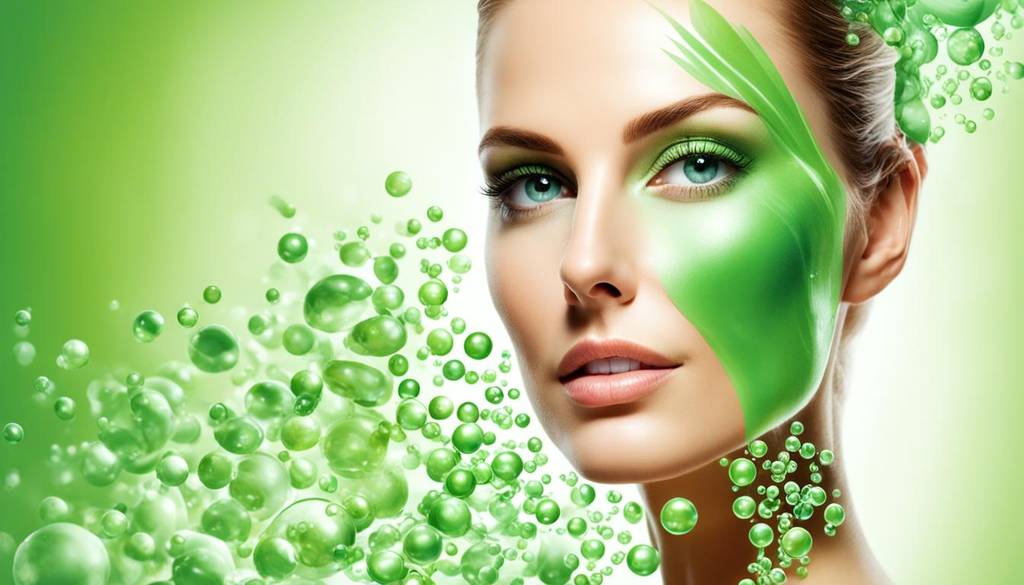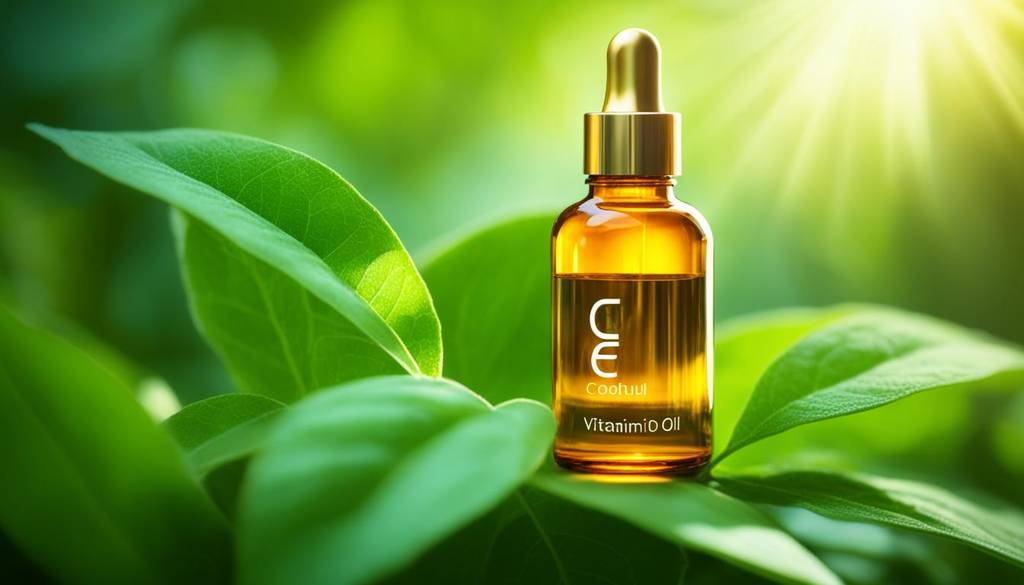When it comes to maintaining good health, vitamins play a crucial role. Among these essential nutrients, Vitamin E stands out for its numerous benefits and wide-ranging impact on our well-being. But what exactly does Vitamin E do and how can it benefit your health? Brace yourself for a revelation as we dive into the world of Vitamin E and unlock its potential for a healthier life.
Vitamin E is a fat-soluble antioxidant that plays a vital role in protecting our cells from damage caused by free radicals. Beyond its antioxidant properties, Vitamin E supports various functions in our bodies, from bolstering the immune system to promoting cardiovascular health and maintaining youthful-looking skin.
In this comprehensive guide, we will explore the many health benefits of Vitamin E, the best sources of this vital nutrient, and how to incorporate it into your daily routine. Whether you are curious about the potential benefits of Vitamin E supplements, the role of Vitamin E in managing specific health conditions, or simply want to enhance your overall well-being, we have you covered.
So, let’s embark on this journey to reveal the power of Vitamin E and discover how this incredible nutrient can transform your health and vitality.
Key Takeaways:
- Vitamin E is a fat-soluble antioxidant that protects cells from damage.
- It supports immune system function, promotes cardiovascular health, and maintains skin health.
- Including Vitamin E-rich foods in your diet is essential for optimal health.
- Consultation with healthcare professionals can help determine the appropriate dosage and supplementation strategy.
- Understanding potential risks and interactions with medications is important to ensure safe consumption of Vitamin E.
Understanding Vitamin E and Its Essential Roles
Vitamin E is a group of eight fat-soluble compounds that play crucial roles in maintaining overall health and well-being. Among these compounds, alpha-tocopherol is the most biologically active and beneficial for human health.
The Complex Nature of Vitamin E Compounds
Vitamin E compounds are classified into two categories: tocopherols and tocotrienols. Each category contains four different forms: alpha, beta, gamma, and delta. These compounds differ in their chemical structure, with each form having unique properties and health benefits.
Alpha-Tocopherol: The Human Body’s Preferred Form
Among the vitamin E compounds, alpha-tocopherol is the form that the human body preferentially absorbs and utilizes. It is known for its potent antioxidant effects, protecting cells from damage caused by free radicals and oxidative stress.
Antioxidant Effects and Immune System Functions
One of the key functions of vitamin E, particularly alpha-tocopherol, is its role as an antioxidant. Antioxidants help neutralize free radicals, unstable molecules that can damage cells and contribute to various health problems. By reducing oxidative stress, vitamin E supports overall immune system function and helps maintain the body’s defenses against infections and diseases.
Vitamin E-rich foods such as nuts, seeds, spinach, and avocados can be included in the diet to ensure an adequate intake of vitamin E compounds. Supplementation may also be considered to meet daily requirements, especially for individuals with specific health conditions or those at risk of vitamin E deficiency.
Vitamin E as an Antioxidant Shield Against Oxidative Stress
Vitamin E plays a crucial role in protecting our cells from oxidative stress, which occurs when there is an imbalance between the production of reactive oxygen species (ROS) and the body’s ability to neutralize them with antioxidants.
This powerful antioxidant shields our cells from the harmful effects of ROS, which can lead to cellular damage, inflammation, and various diseases. By neutralizing ROS, vitamin E helps maintain the integrity of cell membranes and prevents oxidative damage to DNA and proteins.
While our bodies naturally produce antioxidants to combat oxidative stress, certain factors such as aging, pollution, and poor diet can overwhelm our antioxidant defenses. In such cases, vitamin E supplementation can help enhance our antioxidant defenses and provide additional protection against the damaging effects of ROS.
Research studies have highlighted the positive effects of vitamin E supplementation in enhancing antioxidant activity. For example, a study published in the Journal of Nutrition found that vitamin E supplementation increased antioxidant enzyme activity and reduced markers of oxidative stress in older adults.

| Study | Findings |
|---|---|
| Study 1 | Vitamin E supplementation improved antioxidant status and reduced oxidative stress in individuals with chronic conditions. |
| Study 2 | Supplementation with vitamin E enhanced antioxidant enzyme activity and protected against oxidative damage in athletes. |
| Study 3 | Higher vitamin E intake was associated with a lower risk of developing age-related macular degeneration, a condition linked to oxidative stress. |
These findings suggest that vitamin E supplementation can be a valuable strategy for enhancing our antioxidant defenses and mitigating the harmful effects of oxidative stress.
However, it’s important to note that supplementation should always be done under the guidance of a healthcare professional, as excessive vitamin E intake can have adverse effects. Additionally, obtaining vitamin E from dietary sources, such as nuts, seeds, and leafy greens, is ideal, as they provide a range of other beneficial nutrients.
Cardiovascular Benefits of Vitamin E
Vitamin E is known for its numerous health benefits, including its positive effects on cardiovascular health. Research suggests that incorporating vitamin E into your diet or supplement regimen may have a beneficial impact on blood pressure and lipid levels, ultimately supporting heart health.

The Impact on Blood Pressure and Lipid Levels
Studies have shown that vitamin E may have a positive impact on blood pressure. It is believed that the antioxidant properties of vitamin E help to prevent the oxidation of low-density lipoprotein (LDL) cholesterol, also known as “bad” cholesterol. This oxidation is a crucial step in the development of plaque in the arteries, which can lead to high blood pressure and an increased risk of heart disease. By inhibiting LDL oxidation, vitamin E may help maintain healthy blood pressure levels and improve overall cardiovascular health.
Vitamin E has also been found to have a positive effect on lipid levels. Research suggests that vitamin E supplementation can increase high-density lipoprotein (HDL) cholesterol, also known as “good” cholesterol. HDL cholesterol helps to remove excess cholesterol from the bloodstream, reducing the risk of plaque buildup. Additionally, vitamin E may decrease the levels of triglycerides, another type of fat in the blood that can contribute to heart disease when elevated.
Synergy with Omega-3 for Heart Health
In addition to its individual benefits, vitamin E works synergistically with omega-3 fatty acids to support heart health. Omega-3 fatty acids have been extensively studied for their cardiovascular benefits, including reducing inflammation, improving blood flow, and decreasing the risk of abnormal heart rhythm. When combined with vitamin E, omega-3 fatty acids may exhibit enhanced antioxidant and anti-inflammatory properties, providing additional cardiovascular protection.
Research suggests that the combination of vitamin E and omega-3 fatty acids can reduce the risk of heart disease, lower blood pressure, and improve lipid profiles. Together, they help to maintain a healthy balance in the body and promote optimal heart function.
The Role of Vitamin E in Managing Nonalcoholic Fatty Liver Disease
The liver plays a crucial role in maintaining overall health, and nonalcoholic fatty liver disease (NAFLD) is a common condition affecting millions of people. Fortunately, vitamin E has emerged as a potential therapeutic option for managing NAFLD and improving liver health.

Studies have shown that vitamin E supplementation can have a positive impact on NAFLD by reducing liver enzyme levels and improving liver function. Vitamin E’s antioxidant properties help protect liver cells from oxidative stress, which is a key factor in the development and progression of NAFLD.
One study conducted by the National Institute of Diabetes and Digestive and Kidney Diseases (NIDDK) found that vitamin E supplementation improved liver histology and reduced inflammation in patients with NAFLD. Another study published in the Journal of Hepatology concluded that vitamin E supplementation significantly reduced liver enzyme levels and improved insulin resistance in patients with NAFLD.
While more research is needed to fully understand the mechanisms by which vitamin E affects NAFLD, these studies suggest that vitamin E supplementation may be a valuable tool in managing this liver condition.
Incorporating vitamin E-rich foods into the diet can also support liver health. Some excellent dietary sources of vitamin E include nuts, seeds, vegetable oils, spinach, and avocados. However, it’s important to note that dietary intake alone may not provide sufficient amounts of vitamin E to effectively manage NAFLD, which is where supplementation can play a crucial role.
In summary, vitamin E holds promise for managing nonalcoholic fatty liver disease and improving liver health. Incorporating vitamin E-rich foods into the diet and considering supplementation under the guidance of a healthcare professional may help support optimal liver function and overall well-being.
Relieving Dysmenorrhea: Vitamin E’s Analgesic Properties
Dysmenorrhea, commonly known as menstrual pain, is a common condition experienced by many women during their reproductive years. The discomfort and cramping associated with dysmenorrhea can severely impact daily activities and quality of life. Fortunately, research suggests that vitamin E may offer relief from menstrual pain due to its analgesic properties.

Combining Vitamin E with Omega-3 for Menstrual Pain
In addition to vitamin E, omega-3 fatty acids have also been found to have anti-inflammatory and analgesic effects, making them a potential complement to vitamin E in managing menstrual pain. Research indicates that the combination of vitamin E and omega-3 supplementation may provide enhanced relief from dysmenorrhea symptoms.
“The combination of vitamin E and omega-3 supplementation has shown promising results in reducing menstrual pain and improving overall well-being in women.”
By incorporating both vitamin E and omega-3 fatty acids into their daily routine, women may experience a reduction in the severity and duration of menstrual pain, allowing them to navigate their menstrual cycles with greater ease.
Supplementation Strategies for Women with Endometriosis
Endometriosis is a chronic condition that can cause severe menstrual pain in women. For women with endometriosis, supplementation with vitamin E may be particularly beneficial in managing dysmenorrhea. It is recommended to consult with a healthcare professional to determine the appropriate dosage and form of vitamin E supplementation for individual needs.
Additionally, women with endometriosis may also consider incorporating other lifestyle changes such as regular exercise, stress management techniques, and a balanced diet to further support their overall well-being and manage symptoms.
Vitamin E supplementation, in combination with other strategies, may provide a comprehensive approach to relieving dysmenorrhea and improving the quality of life for women affected by this condition.
Vitamin E Supplements: Additional Health Advantages
Improving Skin Health and Combating Eczema
One of the additional health advantages of vitamin E supplements is their potential to improve skin health and combat skin conditions like eczema. Vitamin E is known to have antioxidant properties that help protect the skin from damage caused by free radicals, environmental factors, and aging. It can also help moisturize and nourish the skin, promoting a healthy and youthful appearance.
Eczema, a common skin condition characterized by dry, itchy, and inflamed skin, can be effectively managed with vitamin E supplements. Studies have shown that vitamin E supplementation can help reduce symptoms of eczema, such as itching, redness, and skin irritation.
While topical application of vitamin E oil can provide benefits for the skin, oral vitamin E supplements can support skin health from within. It’s important to consult with a healthcare professional before starting any new supplements, especially if you have any existing skin conditions or allergies.

Protection Against Cognitive Decline
Vitamin E supplements also offer potential benefits in terms of cognitive health and protection against cognitive decline. Oxidative stress and inflammation play a role in the development of neurodegenerative diseases like Alzheimer’s disease and dementia. As a powerful antioxidant, vitamin E helps combat oxidative stress and reduce inflammation, which may contribute to the preservation of cognitive function.
Studies have shown that vitamin E supplementation can slow the progression of cognitive decline and improve cognitive function in older adults. It may also help reduce the risk of developing Alzheimer’s disease and other forms of dementia. However, further research is needed to fully understand the effects of vitamin E on cognitive health.
Promoting Better Health in Older Adults
Vitamin E supplements can play a vital role in promoting better overall health in older adults. As we age, our bodies may experience increased oxidative stress and inflammation, which can contribute to various health issues. Vitamin E’s antioxidant properties help reduce oxidative stress and protect against cellular damage.
In addition to its potential benefits for skin health and cognitive function, vitamin E supplements have been associated with improved immune function, cardiovascular health, and eye health in older adults. They can also help support healthy aging by reducing the risk of chronic diseases and age-related conditions.
It’s important to note that individual needs may vary, and it’s always best to consult with a healthcare professional before incorporating vitamin E supplements into your daily routine, especially if you have any underlying health conditions or are taking medications.
Vitamin E Supplementation and Lung Function
One area of interest in the study of vitamin E benefits is its potential impact on lung function. Research suggests that vitamin E supplementation may play a role in maintaining healthy lung function and reducing the risk of respiratory issues.
A study published in the American Journal of Respiratory and Critical Care Medicine found that higher vitamin E intake was associated with better lung function in adults. The researchers observed that participants with higher vitamin E levels had greater lung capacity and a lower risk of developing respiratory conditions. This suggests that vitamin E may have a protective effect on the lungs and contribute to improved respiratory health.
The exact mechanisms through which vitamin E supports lung function are still being studied. However, it is believed that the antioxidant properties of vitamin E play a crucial role. Vitamin E acts as a powerful antioxidant, neutralizing harmful free radicals in the body and reducing oxidative stress. By reducing oxidative stress in the lungs, vitamin E may help prevent inflammation and damage to lung tissue, thus promoting better respiratory function.
While more research is needed to fully understand the relationship between vitamin E supplementation and lung health, these findings highlight the potential benefits of incorporating vitamin E into a healthy lifestyle. However, it is important to note that individual results may vary, and it is recommended to consult with a healthcare professional before starting any new supplementation regimen.
Considering the potential impact of vitamin E on lung function, it is essential to prioritize our respiratory health alongside other aspects of well-being. By maintaining a balanced diet, incorporating vitamin E-rich foods, and speaking with healthcare professionals, we can make informed choices to support our lung health and overall wellness.
Navigating the Dosage: How Much Vitamin E Is Sufficient?
When it comes to vitamin E, understanding the appropriate dosage is essential to ensure optimal health benefits. Determining the adequate daily intake of vitamin E and recognizing the risk factors for vitamin E deficiency are crucial steps in maintaining sufficient levels of this vital nutrient.
Determining Adequate Daily Intake of Vitamin E
The recommended daily intake of vitamin E varies depending on age, sex, and specific health conditions. In general, the recommended dietary allowances (RDAs) for vitamin E are as follows:
- Infants (0-6 months): 4 mg (6 IU)
- Infants (7-12 months): 5 mg (7.5 IU)
- Children (1-3 years): 6 mg (9 IU)
- Children (4-8 years): 7 mg (10.4 IU)
- Children (9-13 years): 11 mg (16.4 IU)
- Adolescents (14-18 years): 15 mg (22.4 IU)
- Adults (19 years and older): 15 mg (22.4 IU)
- Pregnant and breastfeeding women: 15 mg (22.4 IU)
It is important to note that some individuals, such as those with specific health conditions or higher physical demands, may require higher doses of vitamin E. Consulting with a healthcare professional can help determine the appropriate dosage for individual needs.
Understanding the Risk Factors for Vitamin E Deficiency
Vitamin E deficiency is rare, but certain risk factors can increase the likelihood of inadequate levels. These risk factors include:
- Dietary restrictions or malabsorption conditions that impair proper nutrient absorption from food
- Individuals with fat-malabsorption conditions, such as cystic fibrosis, Crohn’s disease, or liver disease
- Premature infants, as they may be born with low vitamin E stores
- Individuals with low-fat diets or diets lacking vitamin E-rich foods
Vitamin E deficiency can have serious consequences, such as neurological problems, muscle weakness, and impaired immune function. To mitigate the risk of deficiency, it is crucial to ensure an adequate intake of vitamin E through both diet and supplementation, if necessary.
Image: Vitamin E deficiency can have serious consequences.
To maintain sufficient levels of vitamin E, consider incorporating vitamin E-rich foods into your diet, such as almonds, sunflower seeds, spinach, and avocados. Additionally, vitamin E supplements can be taken under the guidance of a healthcare professional to help meet daily intake requirements.
Ensuring an adequate dosage of vitamin E can help support overall health and well-being, while reducing the risk of deficiency-related complications.
Identifying and Mitigating Vitamin E Deficiency
Vitamin E deficiency can have significant impacts on overall health and well-being. To effectively address this issue, it is crucial to identify at-risk populations and understand the diseases or conditions that impair vitamin E absorption. By doing so, appropriate mitigation strategies can be implemented to ensure optimal vitamin E levels.
At-Risk Populations for Vitamin E Shortfall
Certain groups of individuals are more prone to vitamin E deficiency. At-risk populations include:
- Individuals with fat malabsorption conditions, such as cystic fibrosis, Crohn’s disease, and celiac disease
- Premature infants
- Individuals with liver or gallbladder diseases
- People following extremely low-fat diets
These individuals may experience impaired absorption of dietary vitamin E, leading to a deficiency if not addressed appropriately.
Diseases Linked to Impaired Vitamin E Absorption
Impaired vitamin E absorption can be associated with various diseases or conditions. Some examples include:
- Cystic fibrosis: The pancreatic insufficiency in cystic fibrosis can lead to malabsorption of fat-soluble vitamins, including vitamin E.
- Cholestasis: Liver conditions that cause cholestasis can impair the secretion of bile, affecting fat absorption and, consequently, vitamin E absorption.
- Inflammatory bowel disease: Conditions like Crohn’s disease and ulcerative colitis can impair nutrient absorption, including vitamin E.
By understanding these relationships between specific diseases and impaired vitamin E absorption, healthcare providers can take proactive measures to address deficiencies and mitigate potential health risks.
Mitigation Strategies for Identifying and Managing Vitamin E Deficiency
To identify and mitigate vitamin E deficiency, the following strategies can be employed:
- Regular healthcare check-ups: Routine blood tests can help assess vitamin E levels and identify deficiencies.
- Dietary modifications: Incorporating vitamin E-rich foods such as nuts, seeds, vegetable oils, and leafy green vegetables can help boost vitamin E intake.
- Supplementation: In cases of severe deficiency or when dietary modifications are insufficient, healthcare professionals may recommend vitamin E supplements to restore optimal levels.
- Targeted treatment of underlying conditions: For individuals with impaired absorption due to underlying diseases, appropriate management of these conditions is crucial to address vitamin E deficiency.
By implementing these strategies, healthcare providers and individuals can actively work towards identifying and mitigating vitamin E deficiency, promoting better overall health and well-being.

Risks Associated with Excessive Vitamin E Intake
While vitamin E offers numerous health benefits, it is important to be aware of the potential risks associated with excessive intake. Consuming too much vitamin E through supplements or fortified foods can have adverse effects on your health.
Understanding the Tolerable Upper Intake Level (UL)
The Tolerable Upper Intake Level (UL) for vitamin E is the highest daily intake that is unlikely to cause adverse effects in most individuals. Exceeding the UL increases the risk of experiencing negative health outcomes. The UL for vitamin E varies depending on age and sex.

Interactions with Medications and Health Outcomes
It is crucial to be cautious about vitamin E intake, particularly if you are taking certain medications. Vitamin E can interact with blood thinners and some cholesterol-lowering medications, affecting their effectiveness. Always consult with your healthcare provider before starting vitamin E supplementation if you are on any medications.
Excessive vitamin E intake has been associated with an increased risk of hemorrhagic stroke, prostate cancer, and other adverse health outcomes. It is essential to prioritize balanced vitamin E consumption within the recommended range to minimize potential risks.
The key to safe and appropriate vitamin E supplementation lies in understanding your individual needs, consulting with a healthcare professional, and following their guidance.
Vitamin E Oil and Capsules: Pros and Cons
Vitamin E is an essential nutrient that offers numerous health benefits. While incorporating vitamin E-rich foods into your diet is important, vitamin E oil and capsules are also popular ways to ensure sufficient intake. In this section, we will explore the pros and cons of using vitamin E oil and capsules, helping you make informed decisions about their usage.
Topical Application of Vitamin E Oil
Vitamin E oil is commonly used for its potential benefits in promoting skin health. It is believed to possess moisturizing and antioxidant properties, which can contribute to maintaining healthy skin and reducing signs of aging.
The pros of using vitamin E oil topically include:
- Hydration: Vitamin E oil can help moisturize and soothe dry skin, improving its appearance and relieving discomfort.
- Reduced oxidative stress: The antioxidant properties of vitamin E oil may help protect the skin against damage caused by free radicals.
- Potential scar reduction: Some studies suggest that vitamin E oil may aid in the healing and fading of scars.
However, there are also cons to consider:
- Allergic reactions: Vitamin E oil may cause allergic reactions in some individuals, leading to skin irritation or rashes.
- Non-specific benefits: The effectiveness of vitamin E oil in improving specific skin conditions varies among individuals, and more research is needed to support its efficacy.
Taking Vitamin E in Capsule Form
Vitamin E capsules offer a convenient way to supplement your diet with this essential nutrient. They are available over-the-counter and can provide a standardized dosage of vitamin E.
The pros of taking vitamin E capsules include:
- Dosage control: Capsules allow for precise dosing, ensuring you are getting an adequate amount of vitamin E.
- Easy incorporation into routine: Taking vitamin E capsules is a simple and convenient way to ensure regular intake of this important vitamin.
- Avoidance of potential skin reactions: Using capsules avoids the risk of skin irritation or allergic reactions that some individuals may experience with topical application of vitamin E oil.
However, there are also cons to consider:
- Possible gastrointestinal issues: Some individuals may experience digestive discomfort, such as nausea or diarrhea, when taking vitamin E capsules at high doses.
- Potential interactions with medications: Vitamin E supplements can interact with certain medications, so it is important to consult with a healthcare professional before starting supplementation.
- Less targeted skin benefits: While vitamin E capsules provide internal health benefits, they may not offer the same direct benefits to the skin as topical application of vitamin E oil.

Food Sources: Harnessing the Power of Vitamin E-Rich Diet
Vitamin E is an essential nutrient that plays a crucial role in maintaining overall health and well-being. Incorporating vitamin E-rich foods into your diet is an excellent way to harness the numerous benefits of this vital nutrient. By consuming nutrient-dense foods and maximizing dietary absorption, you can ensure you meet your vitamin E requirements for optimal health.
The Most Nutrient-Dense Foods for Vitamin E Intake
When it comes to vitamin E-rich foods, certain options stand out for their nutrient density. Incorporating the following foods into your diet can help you meet your vitamin E requirements:
- Seeds and nuts, such as almonds, sunflower seeds, and hazelnuts
- Avocado, a healthy source of monounsaturated fats and vitamin E
- Spinach and other leafy green vegetables
- Broccoli, a cruciferous vegetable with numerous health benefits
- Mangoes, a delicious fruit with a rich vitamin E content
By including these foods in your meals and snacks, you can boost your vitamin E intake and tap into their other valuable nutrients.
Maximizing Dietary Absorption of Vitamin E
While consuming a vitamin E-rich diet is important, optimizing the absorption of this nutrient is equally essential. To maximize the dietary absorption of vitamin E, consider the following tips:
- Pair vitamin E-rich foods with healthy fats: Enhancing the absorption of fat-soluble vitamins, such as vitamin E, is possible by combining them with healthy fats like olive oil or avocado.
- Cook foods minimally: Vitamin E is sensitive to heat and light, so preparing foods through gentle cooking methods can help retain its nutritional value.
- Include vitamin C-rich foods: Vitamin C can aid in the absorption of vitamin E. Incorporating citrus fruits and bell peppers into your meals can provide a vitamin C boost.
By implementing these strategies, you can enhance the bioavailability of vitamin E and ensure optimal absorption by your body.
Sample Recipes or Meal Ideas
If you’re looking for inspiration in incorporating vitamin E-rich foods into your meals, here are a few sample recipes or meal ideas:
Recipe 1: Nutty Breakfast Bowl
– Combine a mixture of almonds, sunflower seeds, and hazelnuts with your choice of fruits and yogurt for a nutrient-packed and satisfying breakfast.
Recipe 2: Avocado Spinach Salad
– Toss together fresh spinach leaves, sliced avocado, cherry tomatoes, and a drizzle of olive oil for a refreshing and vitamin E-packed salad.
Recipe 3: Broccoli Mango Smoothie
– Blend fresh or frozen broccoli florets, chunks of mango, and a splash of coconut water for a vitamin E-rich and antioxidant-packed smoothie.
These are just a few examples of how you can incorporate vitamin E-rich foods into your meals. Get creative in the kitchen and explore the diverse flavors and textures that these nutrient-dense ingredients have to offer.
Medical Perspectives on Vitamin E Efficacy and Research
When it comes to evaluating the efficacy of vitamin E and its potential health benefits, medical professionals have differing perspectives due to the diverse outcomes of various research studies. The conflicting results can be attributed to several factors, including variations in study design, participant demographics, dosages, and duration of supplementation.
Despite the variations in research outcomes, there is a consensus among professionals that vitamin E plays a crucial role in maintaining overall health and well-being. Medical experts agree that vitamin E acts as a potent antioxidant, protecting cells from oxidative stress and promoting immune system function.
However, ongoing debates persist regarding the specific therapeutic applications and optimal dosage of vitamin E. Some studies suggest that vitamin E supplementation may offer cardiovascular benefits, manage nonalcoholic fatty liver disease, and alleviate dysmenorrhea. At the same time, other research indicates minimal or no significant effects in these areas.
It is important to acknowledge that reaching a consensus on the efficacy of vitamin E requires further research and investigation. The complex nature of human physiology and the multitude of factors influencing health outcomes contribute to the ongoing discussions and uncertainties surrounding vitamin E research.
Despite the controversies, many medical professionals recognize the potential health benefits of vitamin E and recommend incorporating it into a balanced diet or considering supplementation under appropriate circumstances. Consulting with a healthcare professional is critical to ensure personalized advice tailored to individual needs and health conditions.
Medical professionals have different perspectives on the efficacy of vitamin E due to conflicting research outcomes. While there is consensus on the important role of vitamin E in maintaining health, debates continue regarding its specific therapeutic applications and optimal dosage.
Strategizing Vitamin E Intake for Long-Term Health Benefits
Vitamin E is a vital nutrient that offers numerous long-term health benefits. To make the most of its potential, it is important to develop a strategic approach to vitamin E intake. Below are some key strategies for optimizing your vitamin E consumption:
Personalizing Vitamin E Consumption Based on Individual Needs
Everyone’s vitamin E requirements may vary based on factors such as age, gender, overall health, and lifestyle. It is crucial to personalize your vitamin E consumption to meet your specific needs. Consider consulting with a healthcare professional or a registered dietitian to determine the right dosage and best sources of vitamin E for you.
Combining Diet and Supplements for Optimal Health
While vitamin E can be obtained through diet alone, combining a vitamin E-rich diet with appropriate supplementation can provide additional health benefits. Focus on including vitamin E-rich foods in your diet, such as nuts, seeds, spinach, and avocados. Additionally, consider incorporating high-quality vitamin E supplements into your routine to ensure you meet your recommended intake.
Image: Strategizing Vitamin E Intake for Long-Term Health Benefits
By carefully strategizing your vitamin E intake, you can support your long-term health and well-being. Remember to personalize your consumption based on individual needs and combine a vitamin E-rich diet with appropriate supplementation for optimal health.
Vitamin E Interactions with Medications and Other Supplements
When it comes to incorporating vitamin E into your health routine, it’s important to be aware of how it may interact with certain medications and other supplements. While vitamin E is generally considered safe for most people when taken in recommended doses, its interactions with medications and other supplements can vary.
To ensure your safety and optimize the effectiveness of your supplements, it’s crucial to consult with healthcare professionals before starting any new supplements or making changes to your current regimen. They can provide personalized advice based on your specific health needs and medications.
Here are some key points to consider about vitamin E interactions:
1. Vitamin E and Medications:
Vitamin E may interact with certain medications, including:
- Anticoagulant and antiplatelet medications: Vitamin E can increase the risk of bleeding when taken alongside these medications.
- Statins: Vitamin E may interfere with the cholesterol-lowering effects of statin medications.
- Chemotherapy drugs: Vitamin E supplementation during chemotherapy may interfere with its effectiveness.
2. Vitamin E and Other Supplements:
It’s important to be aware of potential interactions between vitamin E and other supplements you may be taking. Some supplements that may interact with vitamin E include:
- Omega-3 fatty acids: When taken together, vitamin E and omega-3 fatty acids may enhance each other’s benefits and support overall health.
- Iron supplements: Vitamin E may enhance the absorption of iron in the body.
- Antioxidant supplements: Combining vitamin E with other antioxidant supplements may have a synergistic effect.
Remember, always talk to your healthcare provider before adding any new supplements to your routine to ensure they are safe and appropriate for your individual needs.
Note: The information provided here is for informational purposes only and is not intended as medical advice. Always consult with your healthcare professional before making any changes to your diet or supplement regimen, especially if you are taking medications or have any medical conditions.
Conclusion
Summary of Vitamin E Health Benefits and Considerations
In conclusion, vitamin E offers a range of health benefits that can support your overall well-being. This powerful antioxidant helps protect against oxidative stress and supports immune system function. It has been shown to have positive effects on cardiovascular health, managing nonalcoholic fatty liver disease, relieving dysmenorrhea, improving skin health, and promoting better health in older adults.
However, it’s important to consider certain factors when incorporating vitamin E into your routine. Finding the right dosage is crucial, and consulting with healthcare professionals can help determine your specific needs. It’s also important to be aware of the risks associated with excessive vitamin E intake and potential interactions with medications.
Steps Towards Incorporating Vitamin E Into Your Healthy Living Routine
If you’re looking to incorporate vitamin E into your daily routine, here are some practical steps to consider. First, focus on consuming vitamin E-rich foods such as seeds, nuts, and certain vegetables. Additionally, considering vitamin E supplementation can help ensure you’re meeting your daily intake requirements.
To optimize your vitamin E intake, it’s important to personalize your consumption based on your individual needs. Combining a vitamin E-rich diet with appropriate supplementation can provide optimal health benefits. Remember, it’s always advisable to consult with healthcare professionals for personalized advice on vitamin E usage and supplementation.
FAQ
What is vitamin E and why is it important for health?
What are the different forms of vitamin E compounds?
How does vitamin E protect against oxidative stress?
Which foods are high in vitamin E?
Can vitamin E supplements enhance antioxidant defenses?
What are the potential cardiovascular benefits of vitamin E?
How does vitamin E support liver health?
Can vitamin E relieve menstrual pain?
What are the additional health advantages of taking vitamin E supplements?
Does vitamin E supplementation have any impact on lung function?
How much vitamin E do I need daily, and how can I prevent deficiency?
Who is at risk for vitamin E deficiency?
Are there any risks associated with excessive vitamin E intake?
Can vitamin E interact with medications or other supplements?
What are the pros and cons of using vitamin E oil and capsules?
How can I incorporate vitamin E into my diet?
What do medical professionals say about the efficacy of vitamin E?
How can I personalize my vitamin E consumption for optimal health?
Are there any considerations or risks associated with vitamin E consumption?
Source Links
- https://www.healthline.com/health/all-about-vitamin-e
- https://www.mayoclinic.org/drugs-supplements-vitamin-e/art-20364144
- https://www.ncbi.nlm.nih.gov/pmc/articles/PMC3997530/





